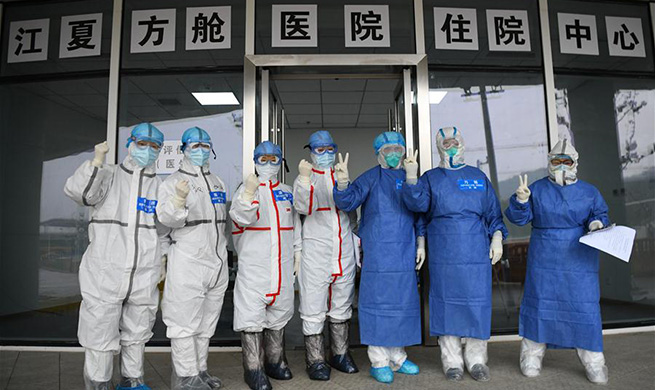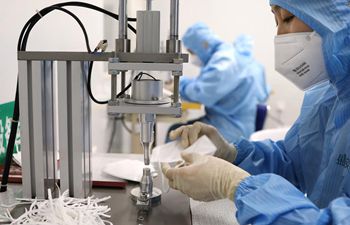ABUJA, Feb. 14 (Xinhua) -- Nigeria is about to set up a special laboratory to boost the country's testing capacity amid the outbreak of Lassa fever since the beginning of the year, an official said on Friday.
The facility will be the sixth laboratory specially set up and strategically located within Nigeria to test Lassa fever, an acute viral hemorrhagic fever ravaging parts of the country, health minister Osagie Ehanire said.
Ehanire told reporters in Abuja that the new facility, upon completion, will enhance the capacity of the five existing laboratories to diagnose the volume of samples across the country. This will also enhance the treatment in tertiary institutions in Nigeria.
The West African country currently has five laboratories located in four southern states of Ebonyi, Lagos, Edo, Ondo, and the capital Abuja.
"Courtesy of the West African Health Organization (WAHO), we want to place the new laboratory strategically so that the distance of getting samples to the laboratory is minimal just as we have other laboratories strategically located across the country," the minister explained.
On Thursday, the Nigeria Center for Disease Control (NCDC) confirmed that the death toll of the Lassa fever outbreak in Nigeria has risen to 70 so far this year.
A total of 472 cases of hemorrhagic fever, which continues to spread in the most populous African country, were recorded as of February 11.
However, the overall case-fatality rate for the 2020 Lassa fever outbreak stood at 14.8 percent, lower than the 18.7 percent recorded during the same period in 2019, the NCDC said in a statement.
At least 23 states have now been affected by the Lassa fever outbreak this year. Each of the affected states has recorded at least one confirmed case so far this year, the NCDC said.
The majority of the cases were recorded in the southern states of Ebonyi, Edo, and Ondo. The local disease control center earlier said that five health workers were among the victims.
Ehanire said a lot of work is being done on Lassa fever, particularly to reduce the fatality rate to a single digit.
Lassa fever is reportedly transmitted when saliva, urine, and excreta of rats come into contact with humans. In some cases, it has similar symptoms as malaria.
Recent epidemiological data show that Lassa fever usually occurs in the country during the dry season between January and April.
The illness was first discovered in Nigeria when two missionary nurses got infected with the virus in 1969. Since then, it has become a disease that Nigeria contends with every year.













